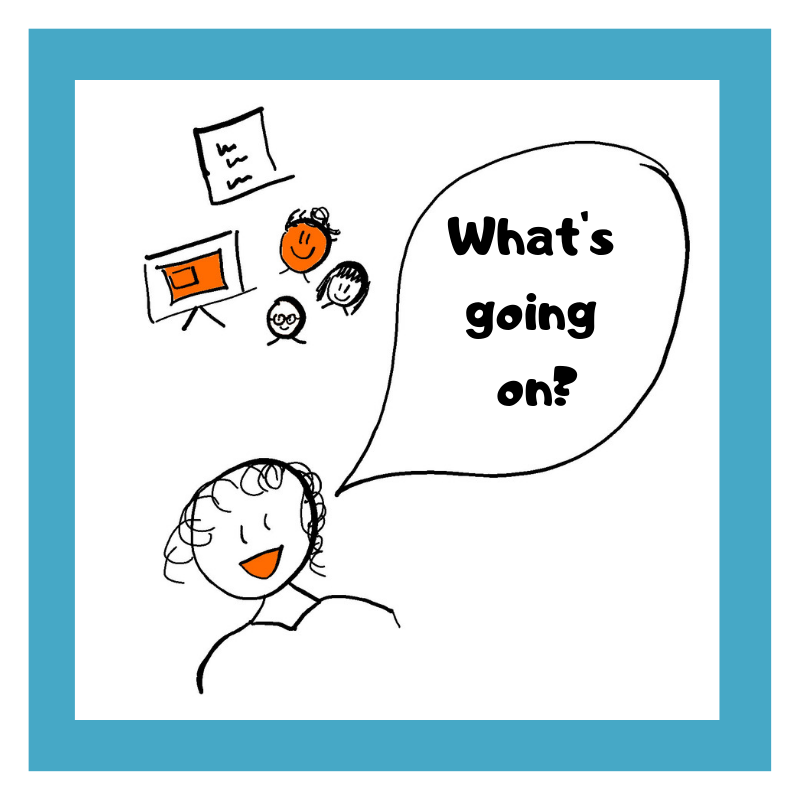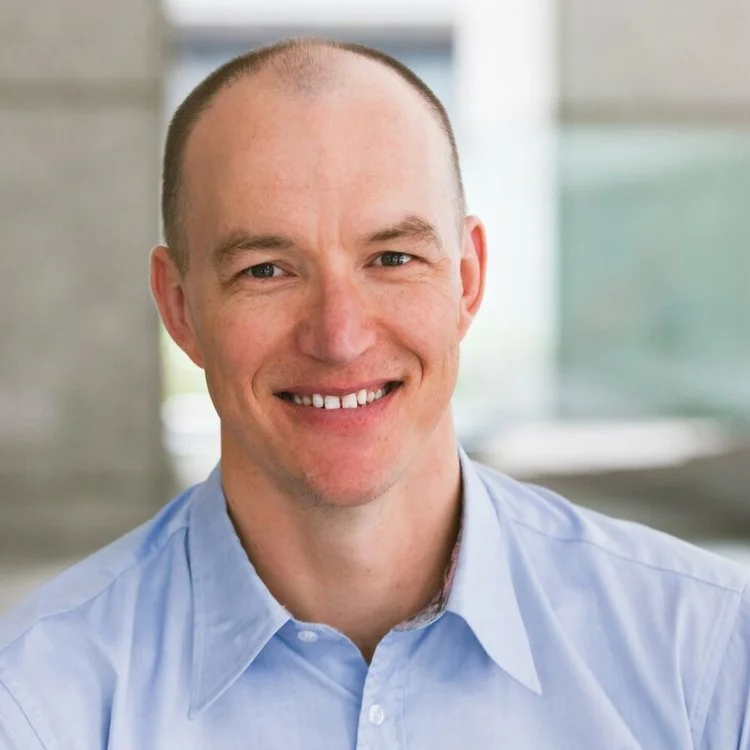WLP209 The Journey of the Remote Leader
Today Pilar explores the paths that a diverse range of leaders of remote teams have travelled, to reach their present roles. Journeys of learning, self awareness and personal growth… Some inspiring conversations, which we will share with you in full later in the year.
But first...
What’s going on?
Our quick round-up of remote work news and conversations:
Online meetings. A new series of articles curated by Judy Rees, and featuring many of our previous guests, as well as Pilar herself, discussing the social connection aspect of online meetings. We’ll have Judy on the show to talk about all the issues that emerged.
Minds at Work contacted us about learning and development in remote teams, so we referred them to Buffer and their exemplary approach to managing and funding professional development - growth mindset, rather than training, for a start.
Breakout rooms - a feature of face to face workshop facilitation since forever, and so far limited to Zoom online. But you can hack MS Teams, or Skype, or anything else, to do breakout sessions if you use different channels, for each room. Reminds us all that it’s not which tool, but how you agree to use it, that matters… Even if it takes a little more prep.
Don’t forget to share with us ‘what’s going on’ for you, and there’s more news, of course, in our newsletter.
Now let’s meet our guests, who discussed multiple dimensions of remote leadership in a series of in-depth conversations with Pilar. (You can find the guided show notes at the end of the post, should you be looking for something in particular or if you’re listening and want to go back to a specific point in time…)
Laïla von Alvensleben
Laïla von Alvensleben
Laïla is Head of People Ops at Mural, a visual collaboration tool for planning and brainstorming.
A new voice for our podcast, Laïla works with remote colleagues in the Americas and Europe, and was thrown into remote team leadership in her first management role, which also involved creating a team from scratch. With her design background, she sometimes misses the creative aspects of her previous role, as her management schedule fills with meetings… but thrives on the journey of the new leader, building support, getting feedback, and learning as she goes along.
She is using a feedback model adapted from an offline version to use with online tools (including their own), and makes use of the visual engagement features their product embodies, while applying forethought to individual needs for privacy and introspection. How a tool is deployed really impacts the way we share and collaborate - something we all need to be aware of.
In terms of wellbeing, Laïla’s team use a bot to check out how they’re feeling/doing on Slack, and she’s found there is sometimes more honesty and frankness about issues like this when responding to a bot than a manager or colleague! She schedules 1:1 conversations with people to have structured conversations, but not ‘just about the work’.
Laïla’s team is distributed in each of the company’s core locations which helps them with visibility locally, and they broadcast information and deal with HR queries through their own Slack channels and meetings (as well as welcoming private enquiries via any path). Hiring and growing fast creates its own challenges with connecting and recognising each other in a team, but they are building structured tools into their onboarding process to make sure everyone knows how to reach them.
Marcus Wermuth
Buffer Mobile Lead
Marcus Wermuth
Our regular guest of the show Marcus transitioned from engineering to leadership by ‘falling into it’ - bringing his extensive remote experience to supporting others in his present role. He found challenges in feeling productive as a manager, due to the less tangible outputs of leadership compared to coding and building where the outcome is immediately manifest. The roles are so different - but it does help to manage engineers if you have been one yourself, and he found his own manager and coach helped him a lot with the transition.
In his mobile app development team he doesn’t need to check in with every person every day and micromanage them, but he has regular 1:1s, and a team call weekly - which he evolved away from status updates to focus on real big questions to discuss meaningfully instead, (via a completely asynchronous phase, see episode 195). Team updates are now reported asynchronously via text.
Experimenting with ways to make his team’s mood and wellness visible throughout the week is a priority for Marcus, to shape leadership priorities in real time. And never forget the way an emoji can convey a multitude of words, and are often excellent for expressing intangibles like emotion.
Building relationships with the human and seeing them grow, is what motivates Marcus as a manager. He finds face to face retreats - team and company wide - irreplaceable for building relationship and bonding, but make it a point to talk to people about non-work things on a regular basis too, connecting over the things that matter to them as individuals. He supports his team in their own professional development and career growth, and finds the flexible structures and tools for careers in place at Buffer very effective for rewarding individual accomplishment.
Making his team and their work visible within the organisation is also vital for Marcus, in a completely distributed and fast growing enterprise, where he acts as the liaison person for communication and recognition.
Tim BurgesS
Tim Burgess
Great to have Tim, who last joined us in episode 207, back on the show to discuss the transition to leadership, and the way this journey drives personal growth.
People are always shaped by their own experiences, and Tim recognised he suffered a productivity slump a few years ago, working from home - he found transferring to a co-working space helped with focus and energy, and enjoyed being in the city again with all its amenities, leading to reflection on the diversity of individual needs.
Other challenges he has overcome include the fact that at a distance you can’t picture the affect your words, in a collaboration platform, might have on someone - so you need constant attention to your communication style and agreements, in order to be balanced and empathetic, creating the context and connection before difficulties arise.
On his personal journey into leadership Tim has learned more about the need for giving positive feedback as well as correcting course, catching people doing something great. And also making expectations clear at the outset - communication again - really understanding people’s concerns, and making it clear what you need from them.
MIllie Blackwell
Millie Blackwell
Millie is the co-founder and CEO of Showcase Workshop, a sales presentation app with distribution and analytics functions. They’re mostly in NZ and USA, with one person in Europe.
Their NZ team is effectively a day into the future, which creates some interesting challenges in terms of even defining a work week, never mind scheduling meetings. She has in-depth 1.1 calls with each team member once a month, face to face where possible - not reviews.
She enjoys working in small clusters and hires to reflect that where possible - remembering that real flexibility is meeting each person’s motivational needs, it’s not about remote at all costs. She enjoys working directly with colleagues in the same area, and was surprised to find out that she was more extroverted than she thought she was!
A good reminder that it’s all about what best serves the work, and that’s going to look different for each person and each team. Fortunately those who enjoy the distributed and office-optional work space tend to be experimental and resilient when it comes to tech and other changes, being willing to try different things and see what works.
Guided Show Notes
07:40 Laila von Alvensleben, Head of People Operations at Mural and Marcus Wermuth, Mobile Lead at Buffer, share their first challenges, as they transitioned from non-managerial posts to leading a remote team. And in the case of Laila, setting up a new team!
25:25 Tim Burgess, co-founder of Shield GEO, reflects on how improving his practice as a people leader is also changing him as a person.
29:03 How do managers and leaders in these teams find out how their people are doing? (Link to episode 195 https://www.virtualnotdistant.com/podcasts/empowering-across-timezones)
37.31 What about meetings over different timezones? Guest Millie Blackwell, co-founder of Showcase Workshop, shares how the two “clusters” in her organisation have restructured the week to suit both timezones.
40.53 Team leaders in the distributed space are not afraid to experiment. Laila shares how the nature of team feedback activity changes when transferred online. Find out more about this here: https://logbook.hanno.co/remote-team-feedback/
45.22 What role does technology play in communication? And can bots prompt more honest responses than humans? Marcus and Laila share their experiments.
51.56 Millie and Laila tell us about the purpose of one-one meetings in remote teams.
54.40 Marcus shares what he likes most about his job: supporting others. He tells us how he gets to know people better, and help them progress in the organisation and craft jobs they enjoy.
01:00:16 Marcus and Laila share how they keeping their teams visible in the organisation.
01:05:10 What Tim and Millie discovered about themselves by being apart form those they work in, and the role that co-working plays in their work life.
Adopting remote practices should suit the people, the work and the organisation. Location-independence experimentation needs to serve the work.
01:11: 22 Finally, how do team leaders know whether they’re doing a good job? Tim and Laila share their experience, while Marcus tells us how he got over the sense that he wasn’t being productive in his new role.
If you enjoyed these insights, do look out later in the year for the full interviews with each of these inspiring guests. And do send us your comments, or catch up on Twitter to join the conversation.
If you like the podcast, you'll love our monthly round-up of inspirational content and ideas:






